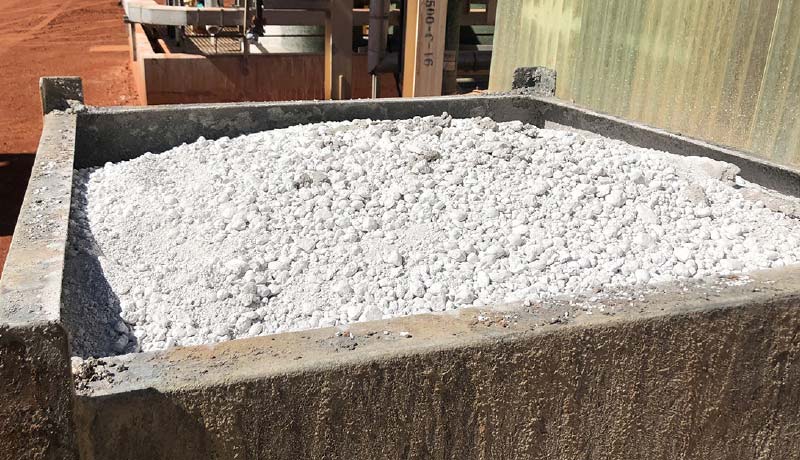For more than 12 months, CME has been working behind the scenes with the Association of Mining and Exploration Companies and member companies including Pilbara Minerals in commissioning Australian Venture Consultants to produce a 113 page report and confidential addendum, which recommended temporary royalty relief should be provided to lithium producers. It was therefore pleasing to see the WA Government recognise the market’s challenging circumstances and announce a 12-month rebate scheme to those companies who contributed data to support the study’s benchmark efficacy analysis.
The rebate scheme will provide a 50 per cent rebate, like the Magnetite Financial Assistance Program which lapsed on 31 December 2019. It is important to note if the average price of spodumene concentrate is ≥ USD 550 per tonne for any given quarter, the rebate will not be applicable.
Following the 12-month assistance period, companies will also need to repay the rebates over two years under the expectation lithium prices will recover as global demand for electric vehicles (i.e. using lithium-ion battery chemistry) picks up again.
A number of the report’s other recommendations are also already being acted on, including through the Government’s recently reinvigorated Future Battery Ministerial Taskforce.
Payment Times Reporting Scheme guidance released
The guidance materials to support compliance under the Payment Time Reporting Bill 2020 (Cth) have been released. Like the Modern Slavery Register, the scheme will be underpinned by a ‘name and shame’ concept of transparency to drive cultural change in the payment behaviour and performance of reporting entities to small businesses (annual turnover of less than $10 million). Please note: before considering whether to publish the identity of non-compliant reporting entities, the regulator must notify the reporting entity and invite written submissions within 28 days.
Members should also be aware the non-enforcement ‘grace’ period is 12 months, not the 18 months originally envisioned earlier in the consultation process. The following civil penalties for non-compliance may be imposed by the courts from 1 January 2022 onwards:
| Nature of contravention | Maximum penalties for incorporated entities |
| Failure to report | 300 penalty units (can be applied per day of non-compliance), i.e. $66,000 a day |
| False or misleading reports | 0.6 per cent of total income for the income year in which the contravention occurred, i.e. $6 million for a minimum annual turnover of $100 million |
| Failure to keep records | 0.2 per cent of total income for the income year in which the contravention occurred, i.e. $2 million for a minimum annual turnover of $100 million |
| Failure to comply with audit notice | 200 penalty units (can be applied per day of non-compliance), i.e. $44,400 a day |
| Failure to reasonably assist the auditor | 0.2 per cent of total income for the income year in which the contravention occurred, i.e. $2 million for a minimum annual turnover of $100 million |
CME encourages members to become voluntary signatories to the Australian Payment Supplier Code and welcomes the public announcements by some members earlier this year during the peak of COVID-19 to offer shorter payment terms to small, local and Indigenous businesses.
There are currently no plans to hold large virtual forums for reporting entities (i.e. large businesses with an aggregated annual turnover ≥$100 million). If there is enough interest among members, however, CME may plan to hold a forum in the new year, inviting the department and regulator to present.
To express interest in such a forum or raise any issues in relation to the guidance materials, please contact L.Nguyen@cmewa.com.











